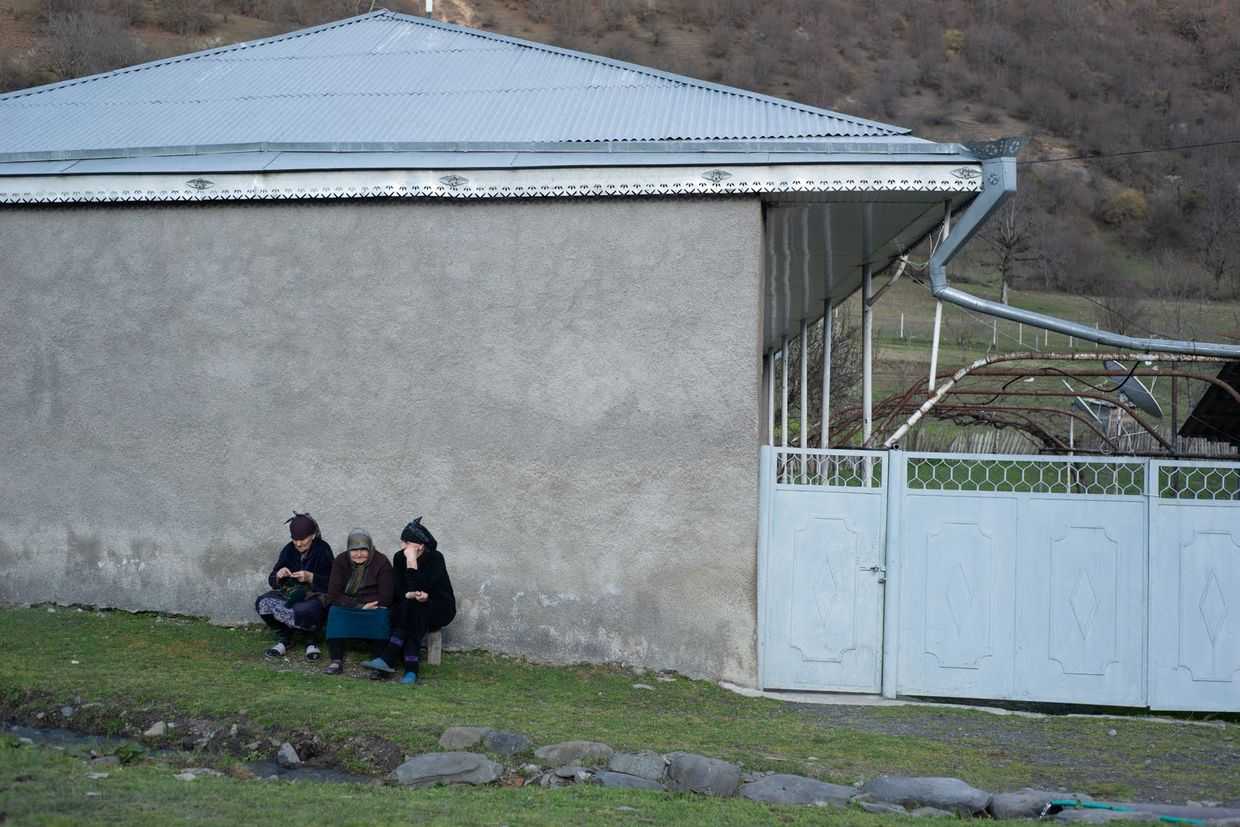The last women performing Zikr in Pankisi — Georgia’s sacred Sufi chants edge toward silence
In Georgia’s Pankisi Valley, a sacred Sufi ritual endures — led by elderly women, the chants may soon fall silent with no one left to follow.

A remembrance of God, a song for peace, and a Sufi practice that enchants participants and spectators alike, Zikr is a ritual practiced across the Muslim world, but in Georgia’s remote Pankisi Valley, it reflects a tradition shaped by the community’s lived experience and spiritual heritage.
‘The night before my first Zikr, I couldn’t fall asleep from happiness and anticipation’, recalls 66-year-old Raisa Margoshvili, today a Zikr group leader in the village of Duisi.
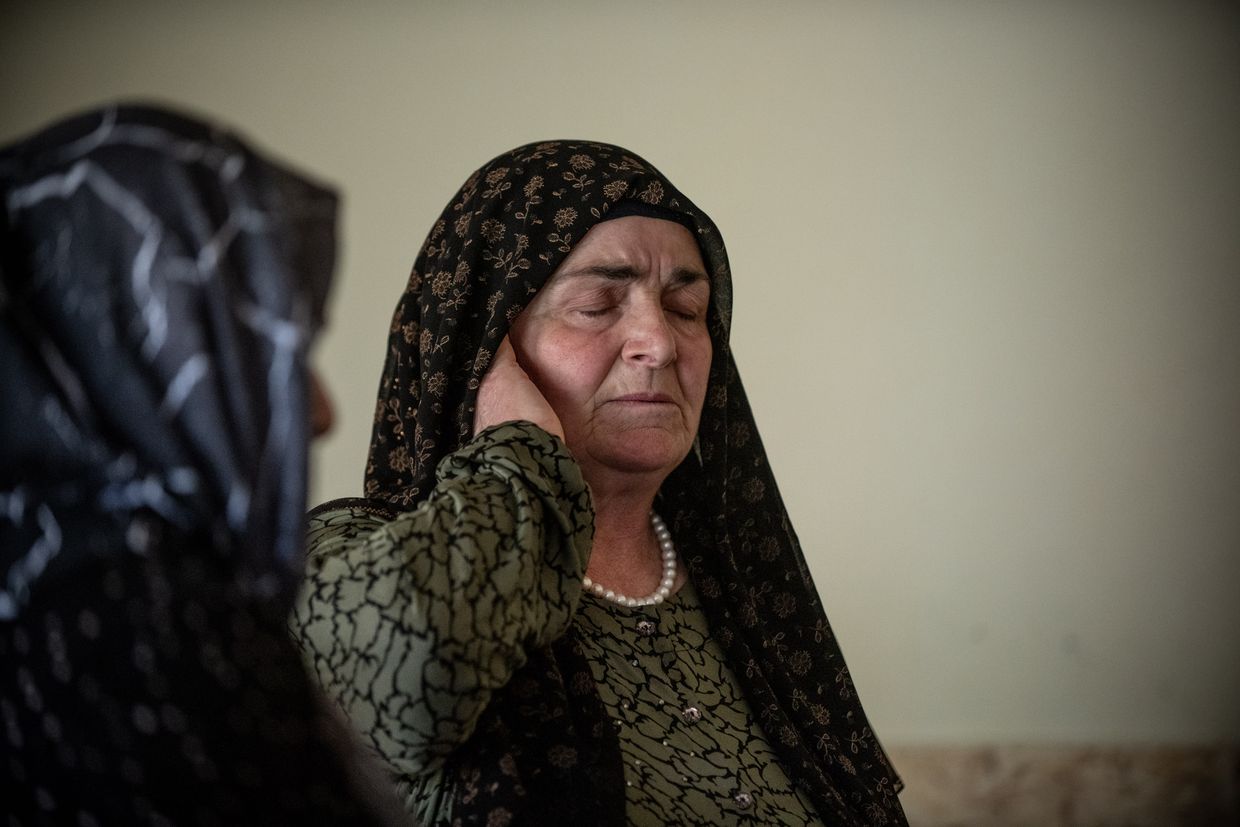
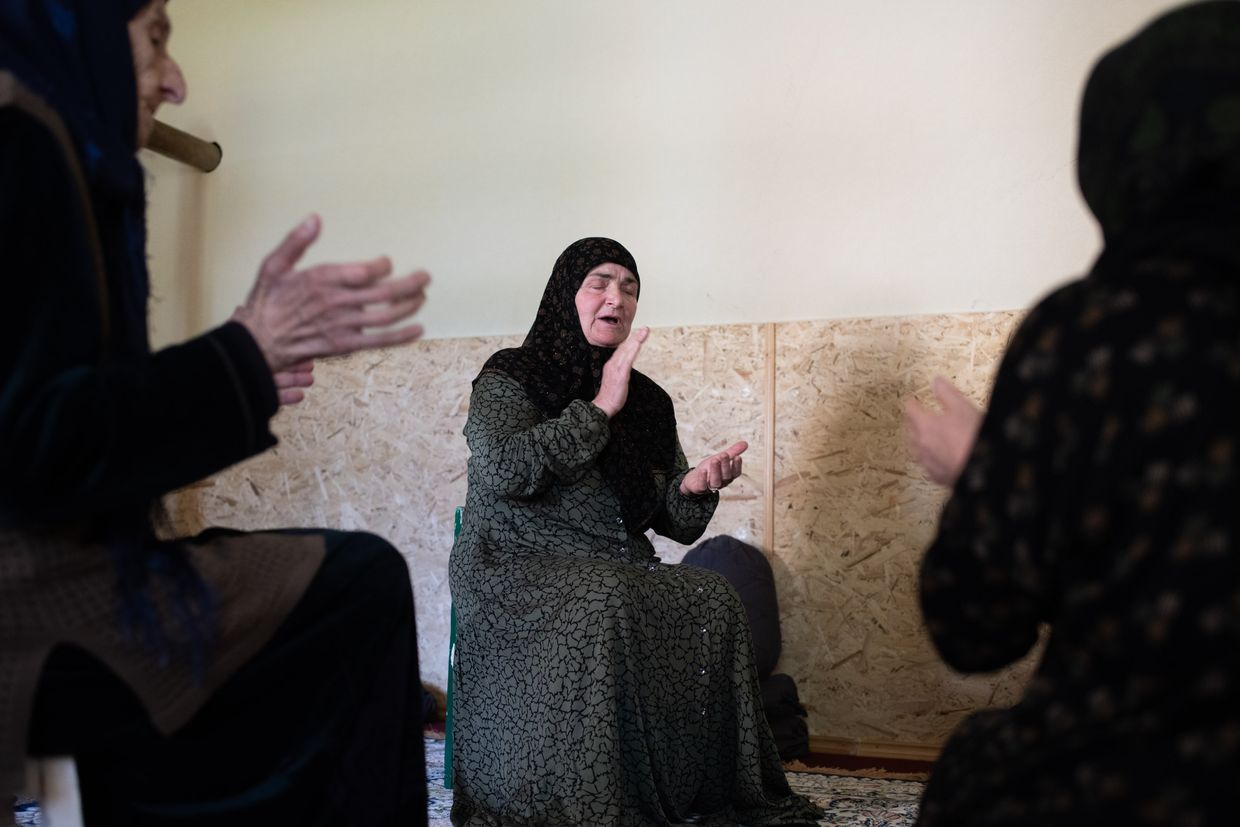
As a shy young woman in her husband’s village, Raisa, although musically inclined, was content with listening to vinyls and CDs and singing at home, though she secretly wanted to join the women’s Zikr. One night, however, her neighbours came and told her to get ready for the morning. When Raisa hesitantly opened the door to the mosque, she saw a room full of women with their leader Aatsanei Margoshvili, a strict old lady who commanded Raisa to come and sit with them.
Only a few years later, when Aatsanei named Raisa her successor, she revealed she had had a feeling about Raisa, a stranger from another village, right from their meeting. And though at first Raisa pleaded to take such responsibility off her shoulders, she’s now been proudly leading the Zikr every Friday at noon, no exceptions, for over 30 years. Unlike her predecessor, however, Raisa doesn’t have anyone to pass on the tradition to, and the Sufi ritual in Pankisi may die out.
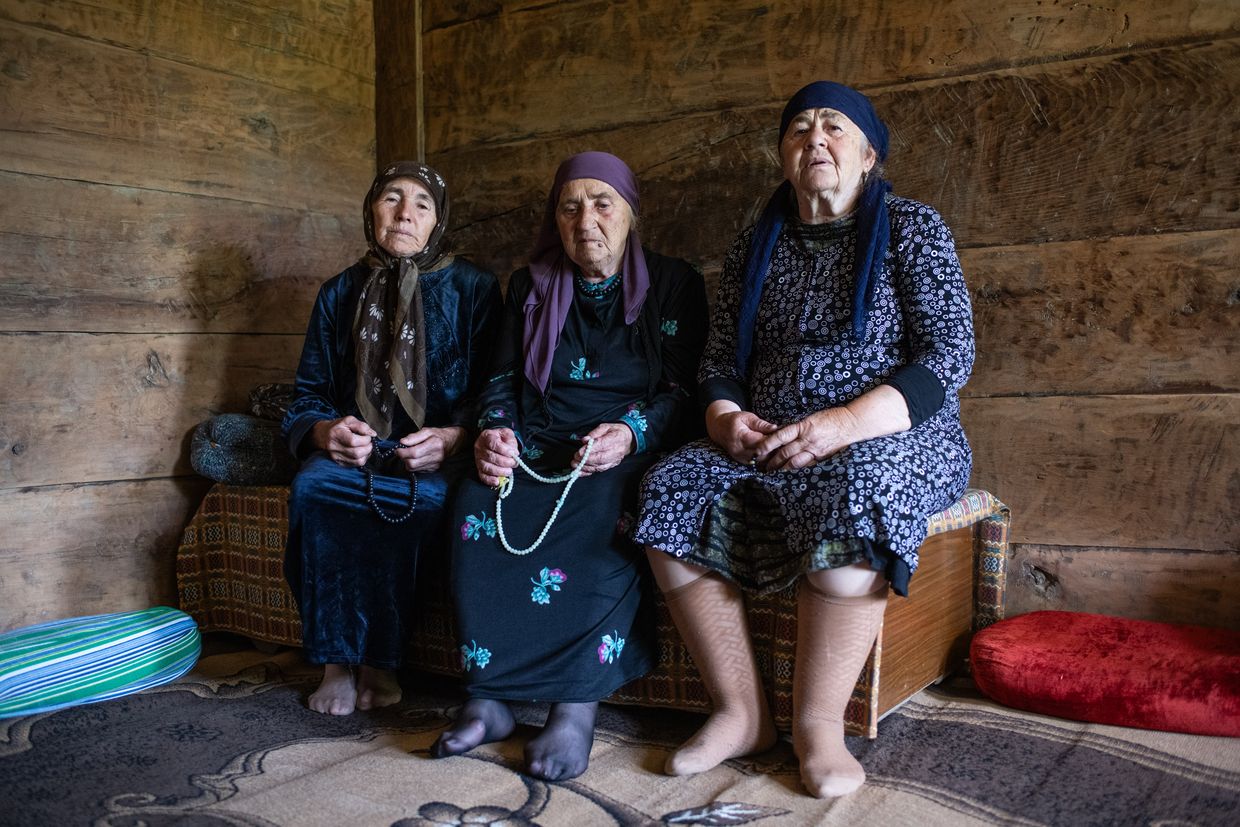
Sufism, a mystic practice of Islam, has had many faces in the Caucasus depending on who preached it. One of the most prominent teachers was Kunta-Hadji Kishiyev, a Chechen mystic and religious educator and a follower of Qadiriyya — a Sufi Sunni order established in Iraq. In times when few people knew the Quran verses and religious practices, he taught Islam and a philosophy of non-violent resistance amid Russia’s conquest of the North Caucasus. Kunta-Hadji founded the Sufi branch of Zikrism, with the ritual of ‘remembrance’ of God at its core, based on names of Allah repeatedly recited, be it in silent solitary meditation or in a communal ritual.
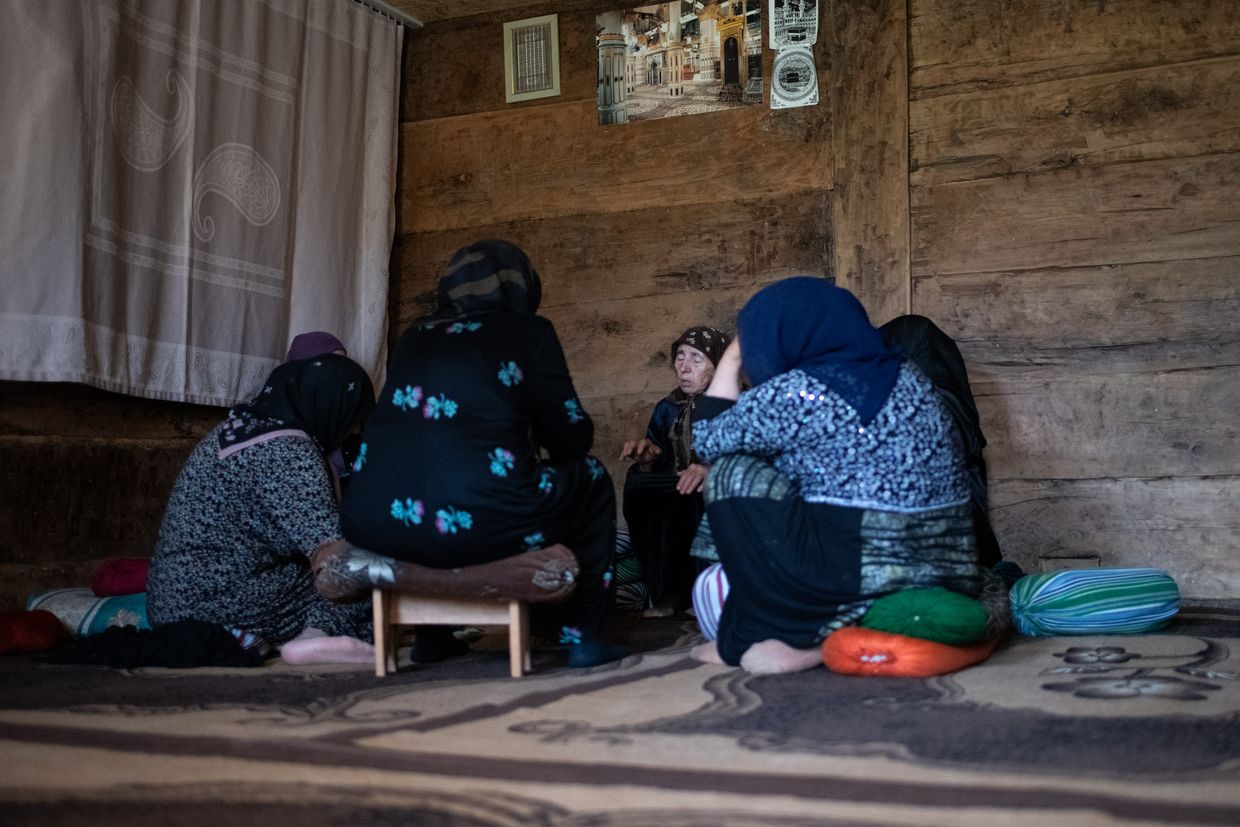
Meqa Khangoshvili, a Doctor of Philology and a lifelong resident of Pankisi, explains that although Zikr generally translates as ‘remembrance’, in Pankisi it is often referred to as Ziarat, or a visit of consolation, since here the ritual was traditionally performed for the deceased. In general, it is a plea for peace and happiness, but above all, the refrain is always the first pillar of Islam: ‘There is no god but God, and Muhammad is the messenger of God’.
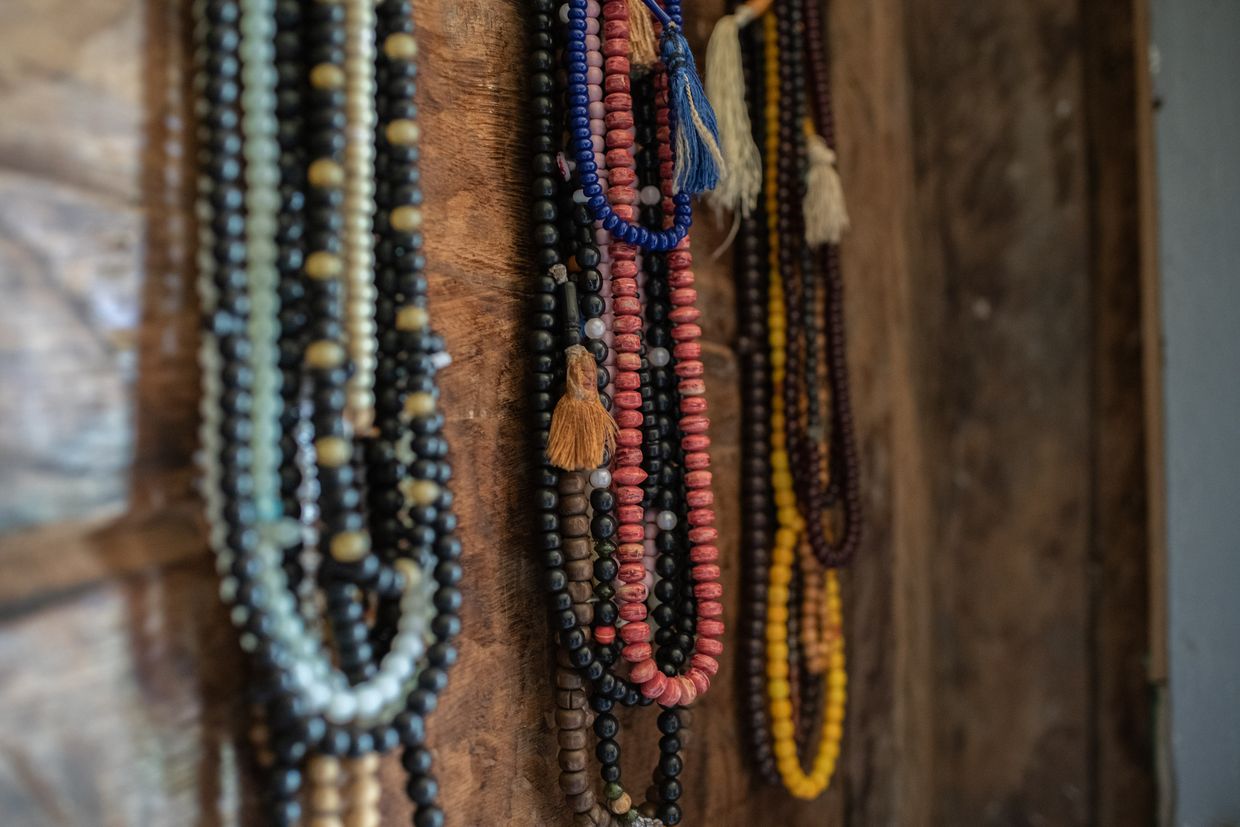
A second Zikr practiced in Duisi, just a couple of streets away from the mosque, is based on the teachings of Isa-Effendi, an Azerbaijani sufi. He settled in Pankisi after a life of travels and gained the status of Sheikh, an important elder in the community.
The ‘prayer house’, where Isa-Efendi lived and taught for the last 15 years of his life, stands on the premises of the Baghakashvili family, who welcomed the teacher over a hundred years ago.
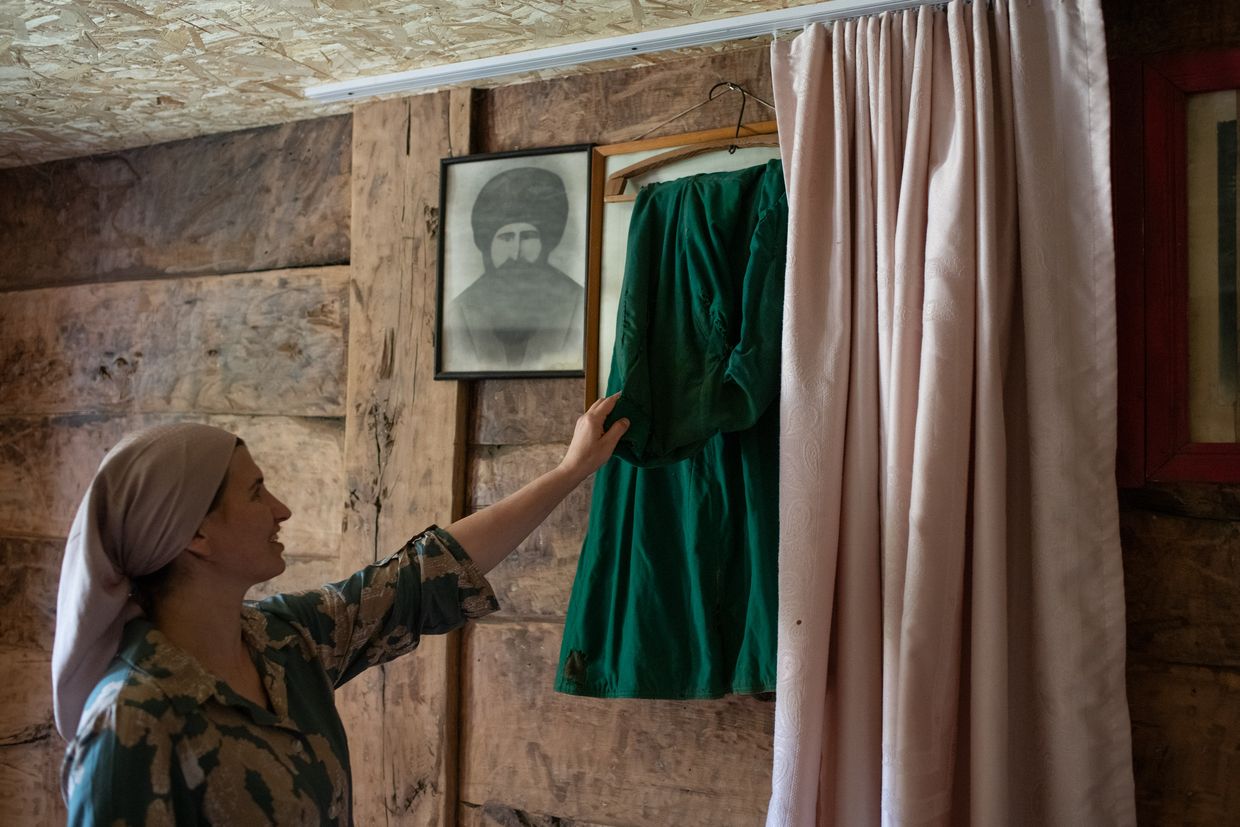
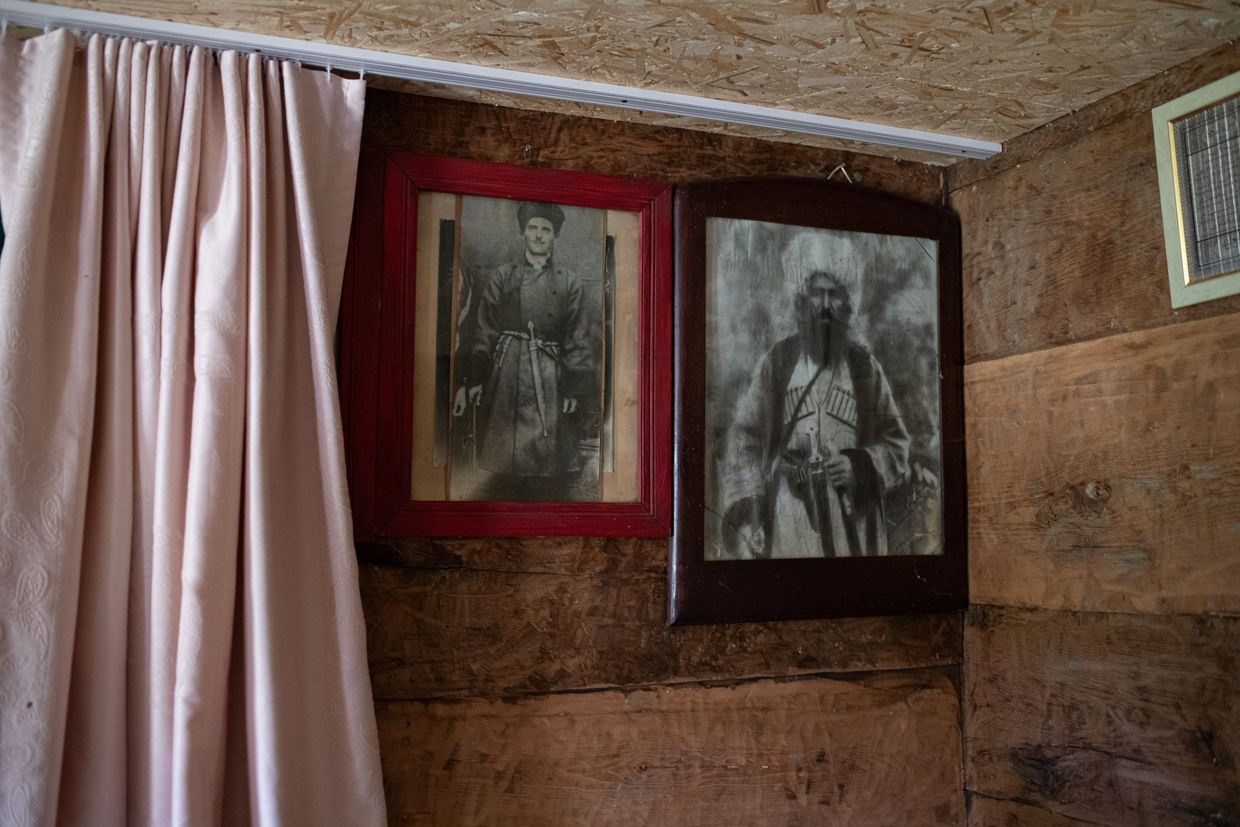
Here, too, Zikr is performed every week — on Thursdays by men, on Fridays by women. Both groups, the ‘Huji’ mosque and ‘Sheikh’ prayer house, refer to Zikr as Ziarat, but perform it differently — the Qadiryya order chants while standing and moving in a circle, while the Naqshbandiya order, the followers of Sheikh Isa-Effendi, perform sitting. Although ideologically these orders are quite different, in Pankisi, the difference is minor and mostly ritualistic.
When elderly women from the Kunt-Hadji group come to the mosque, they chat about their home errands, their blood pressure, and news around the village, but as soon as Raisa starts to chant, the happenings of daily life drift away and the mystical circle emerges. Even with occasional tourists present, and in spite of scorching heat and a wrinkling carpet, the women fall into a trance that takes them beyond the physical realm.
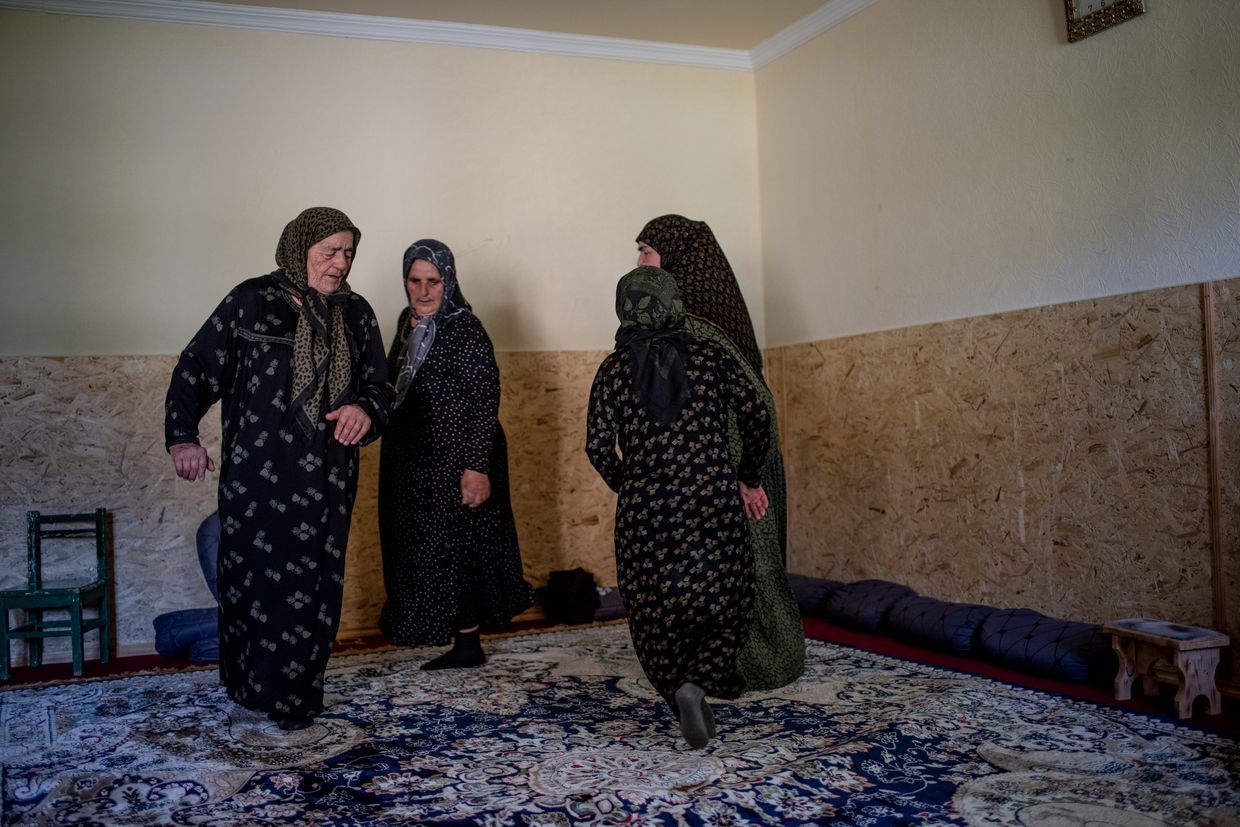
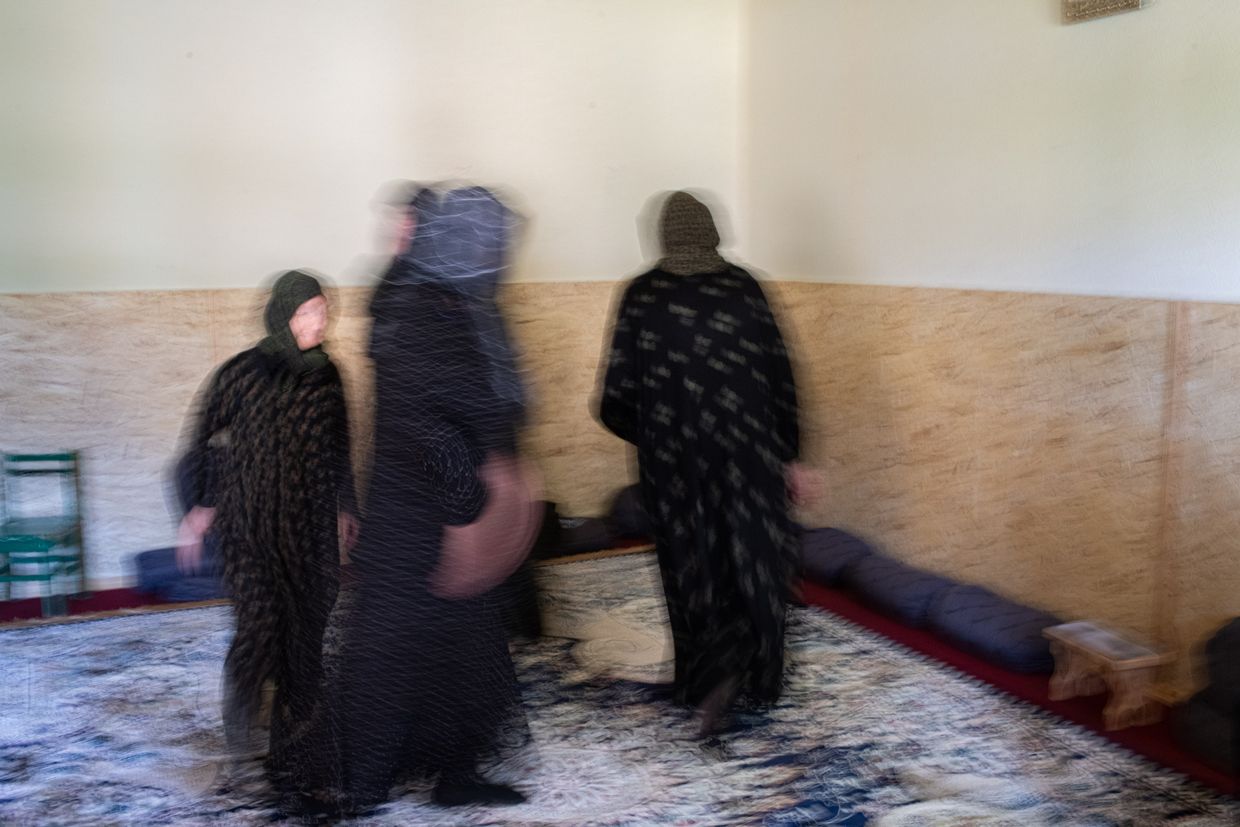
The 85-year-old Makvala Gaurgashvili, who just a moment ago wearily sat on a stool, now runs in a circle with other women, led by Raisa’s chanting and the rhythmical choir of the others. Only six women participate in today’s ritual, as others could not come, mostly for health reasons, but the ones who are here pour themselves into this twenty-minute plea to God for peace, accompanied by foot stomps, claps, and running in a circle.
‘I am eagerly waiting for Friday every week,’ Makvala says. ‘As long as I still stand, I will come here. No matter how weak I feel, whenever I step into this yard, it’s like I’m growing wings’.
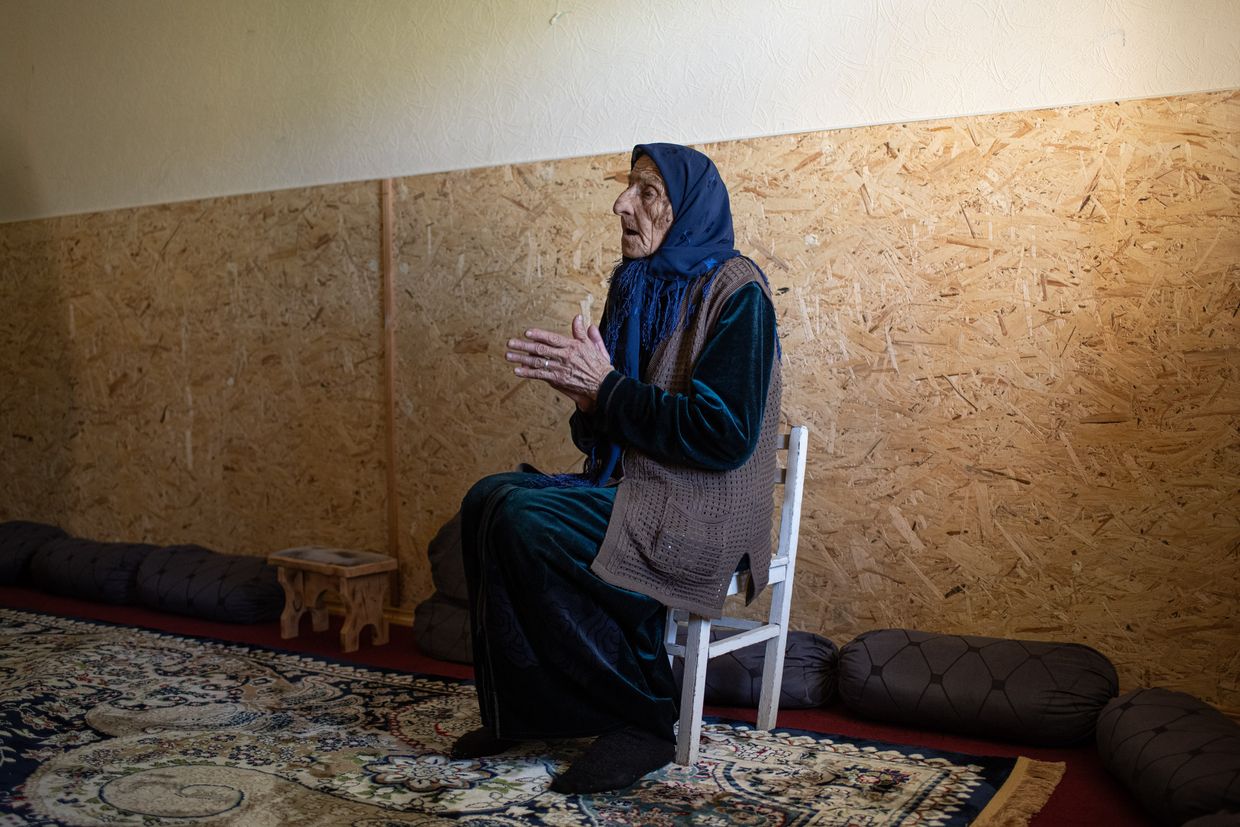
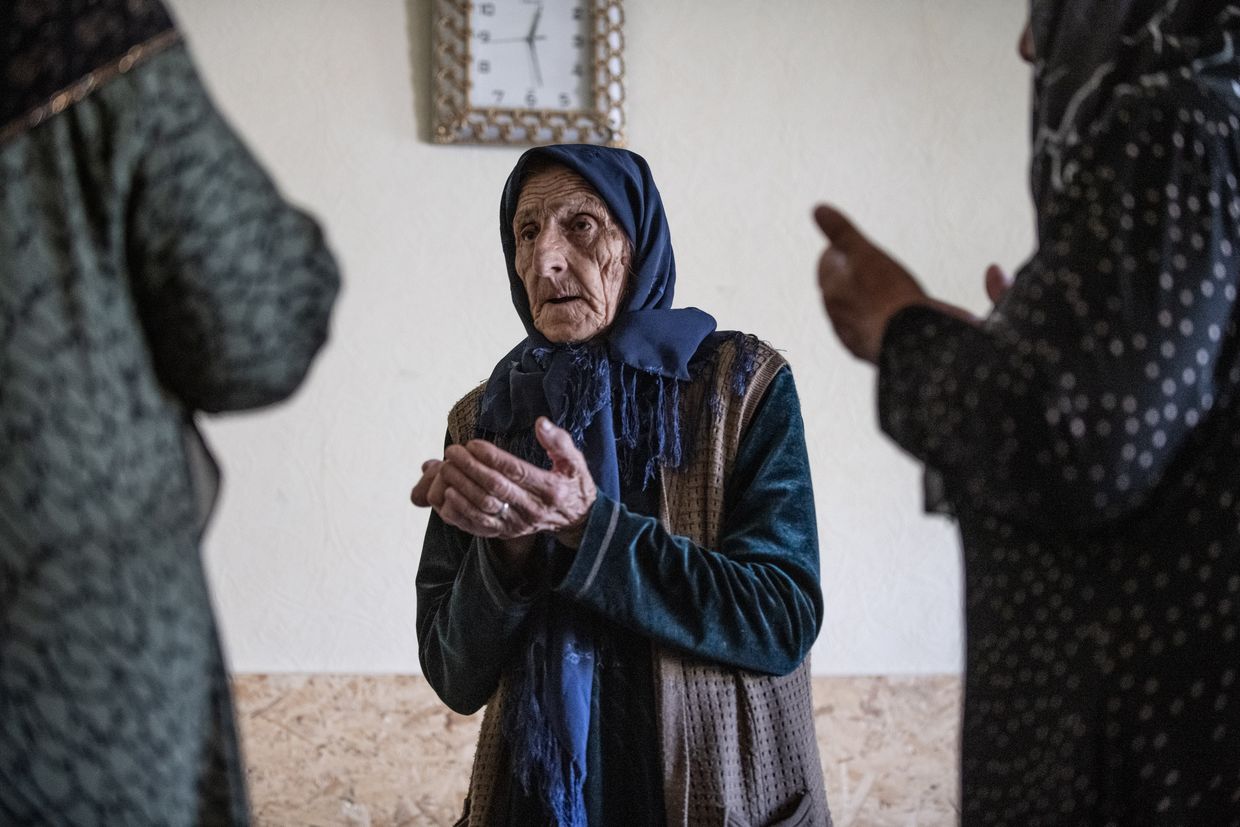
The other group, led by Senibat Khangoshvili, hugs when the chant is over. Murids — or sufi followers — also perform Zikr at funerals, and since there is one today, both groups set off to visit the same house for mourning.
The Sufis of Pankisi also perform Nazms — sacred songs that can be a part of Zikr or standalone, depending on meaning and purpose.
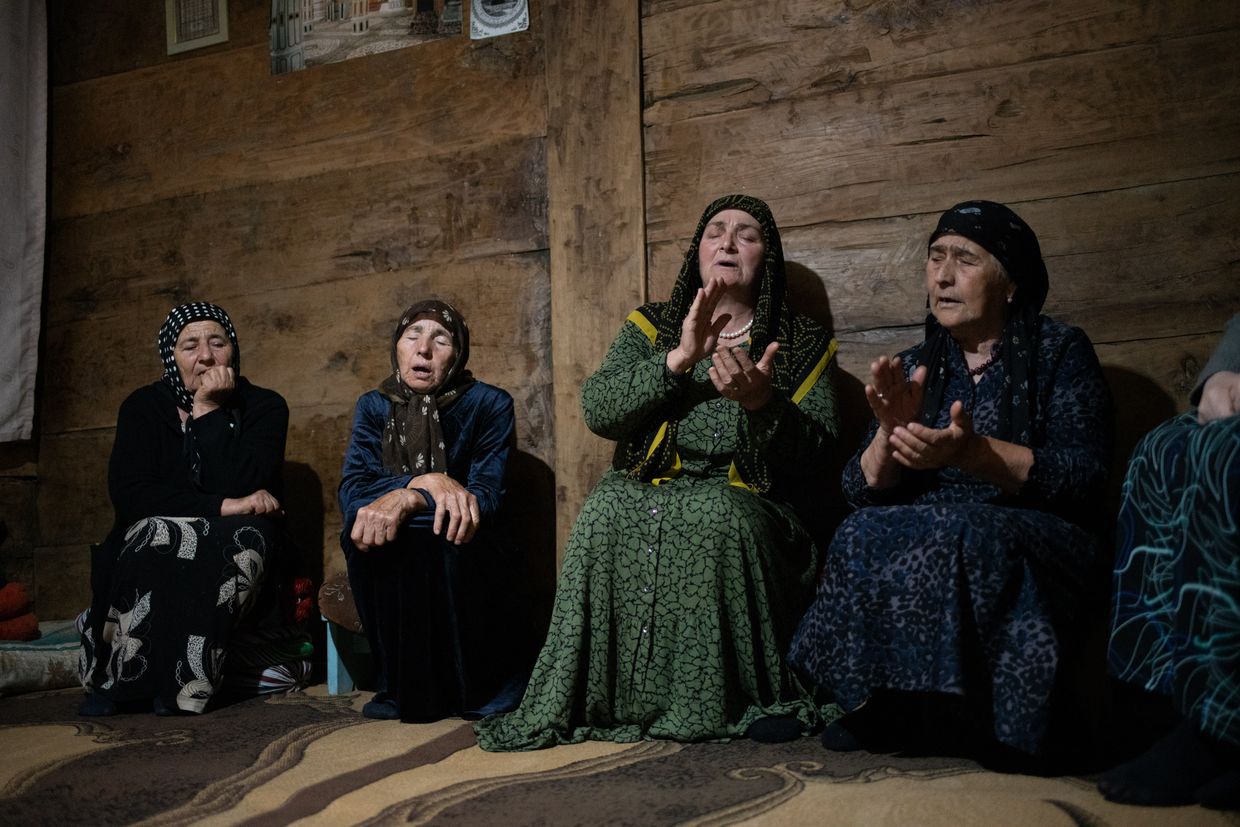
These practices, however, are frowned upon in the second branch of Pankisi Islam, Salafism. This movement within Sunni Islam recognises the first three generations of Muslims, salaf, as an example of purity in Islam and relies strictly on the Quran, while seeing the later practices as deviations from the original faith.
Sometimes, Wahhabism is mentioned in regard to Pankisi, although commonly, it is the label used by outsiders. Wahhabism, a movement within Salafism, is a strictly anti-Sufist, conservative movement that advocates for the purity of Islam. The term is often used to describe the ultra-conservative interpretation of Islam in Saudi Arabia — however, many Saudis and Salafis reject such terminology.
Meka Khangoshvili says that in these movements, mentioning the names of Sufi teachers and pleading Allah for their souls during Zikr can be interpreted as equalling them to God; however, she adds, for all Muslims, Sufi or not, there is no God but Allah.
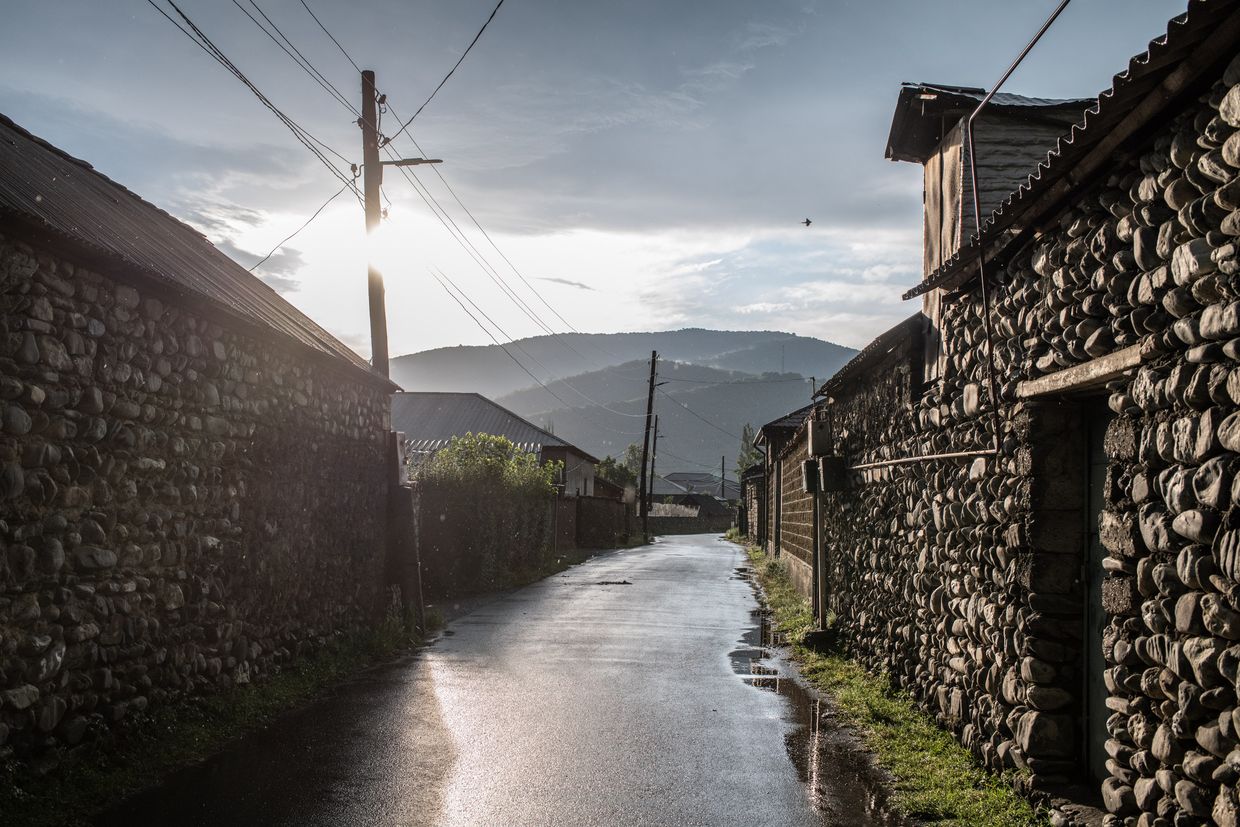
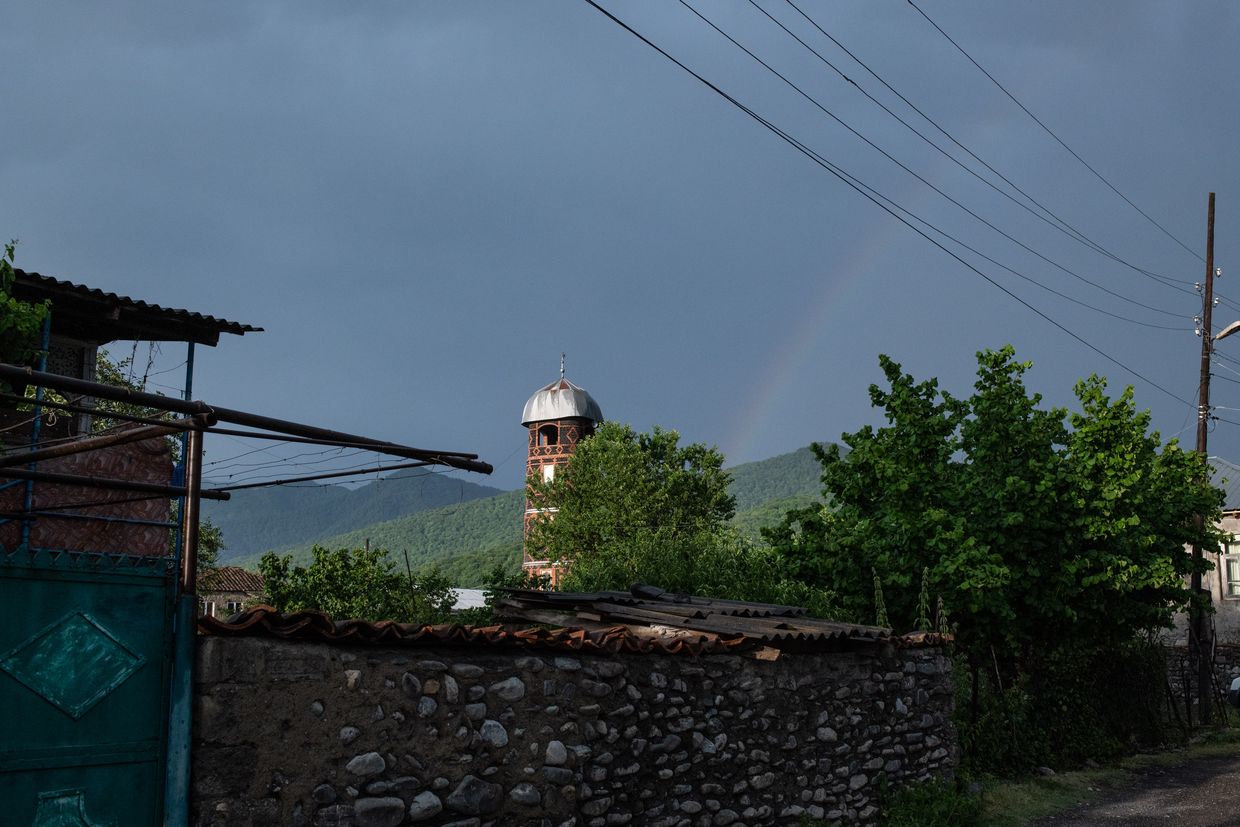
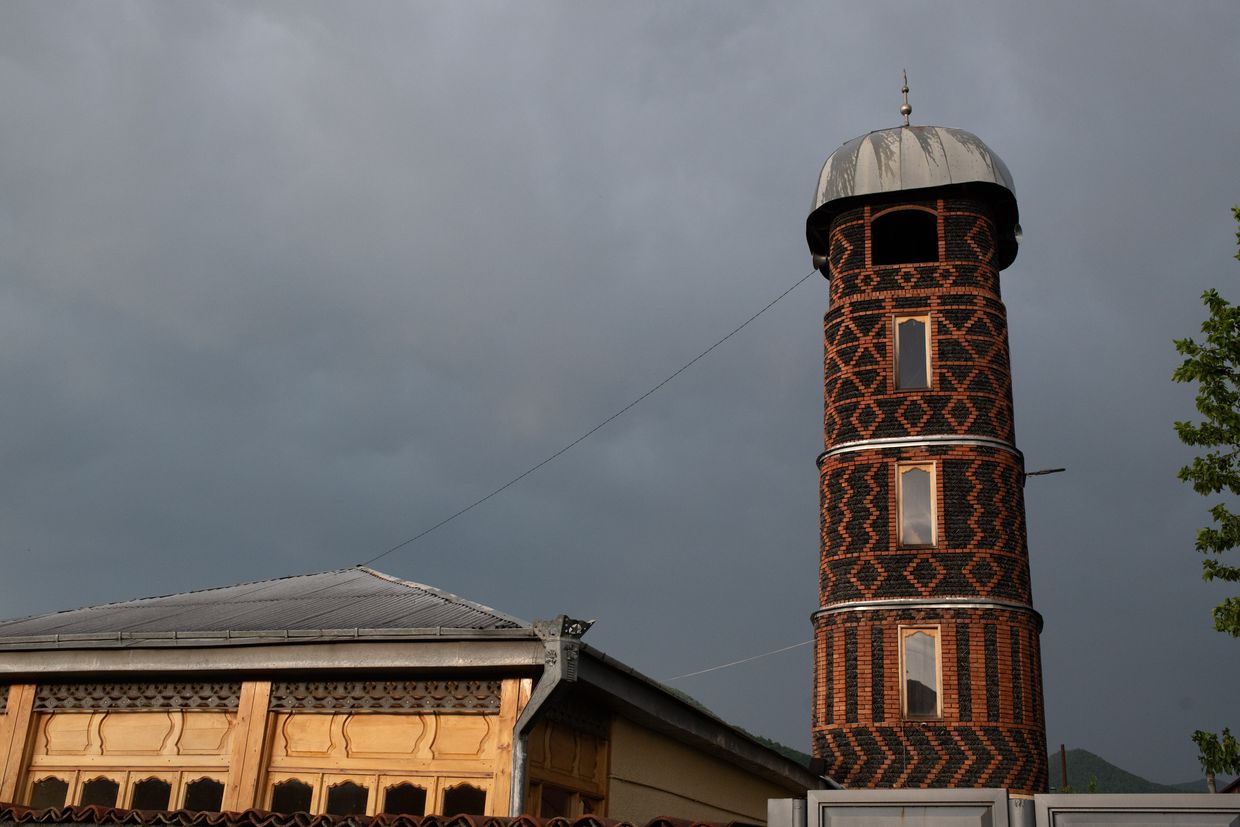
The Salafi movement started gaining momentum in Pankisi in the early 2000s. Currently, Salafi Muslims gather in the new mosque right on the main road, which is where most young people attend prayer.
‘Since our youth gained more information and access to Arab languages, read the Quran, traveled to Syria and Iran and got education there, they follow these [Salafi] views and care less about the old rituals’ Sveta Borchashvili, the chair of Women’s Council of Pankisi and an educator who spends a lot of time with young people in Pankisi, says.
She believes that young people approach their identity differently, and that it is people in their forties and fifties or above who still show some interest in the rituals of the past.
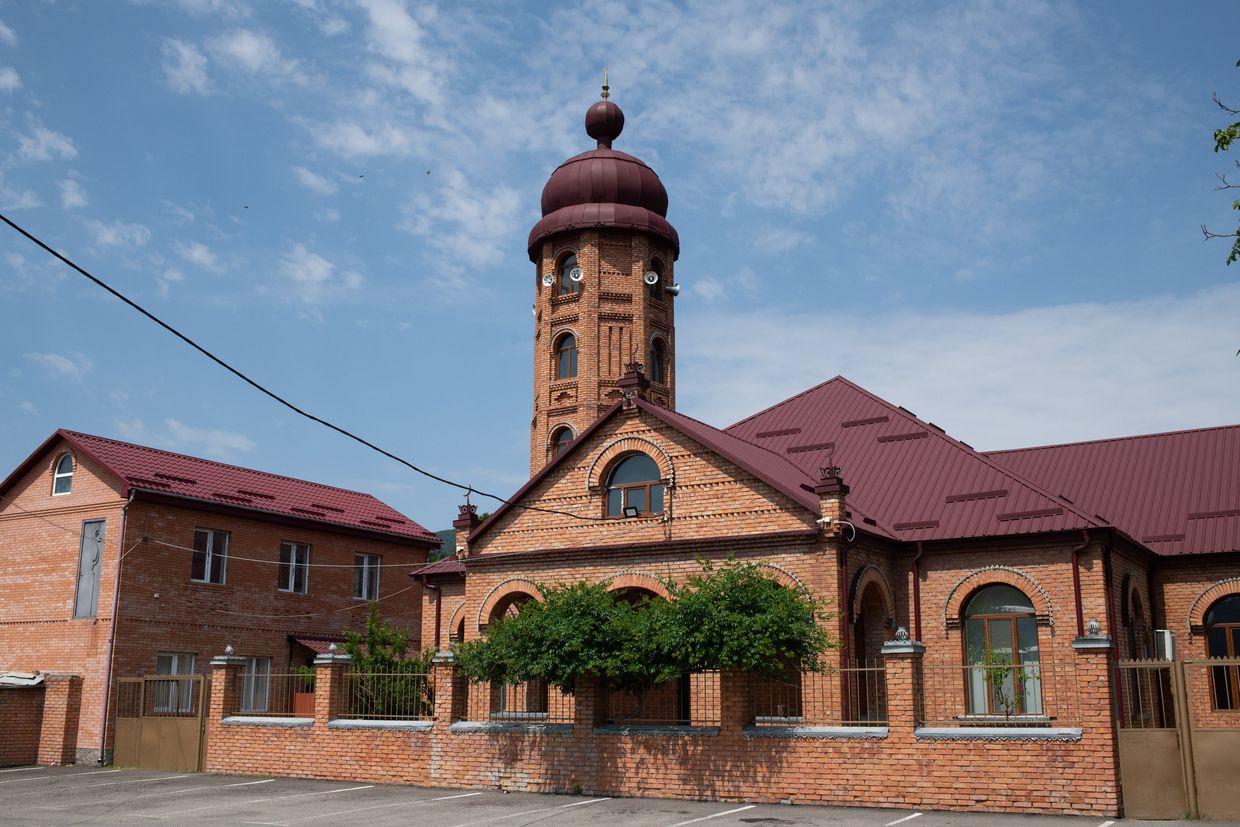
Younger generations who don’t practice Zikr still grew up around the ritual, however, and some even participated as children.
Khatuna Margoshvili, 33, the current keeper of Isa-Effendi’s house, is one of these girls who performed Zikr as a Kunt-Hadj follower as a child in a group so large, it would not fit indoors — however, she has not done it since she was a child.
‘I respect both of our religious paths, but also don’t see the point of being the only young person to participate. It would make more sense with at least three of us’, she says.
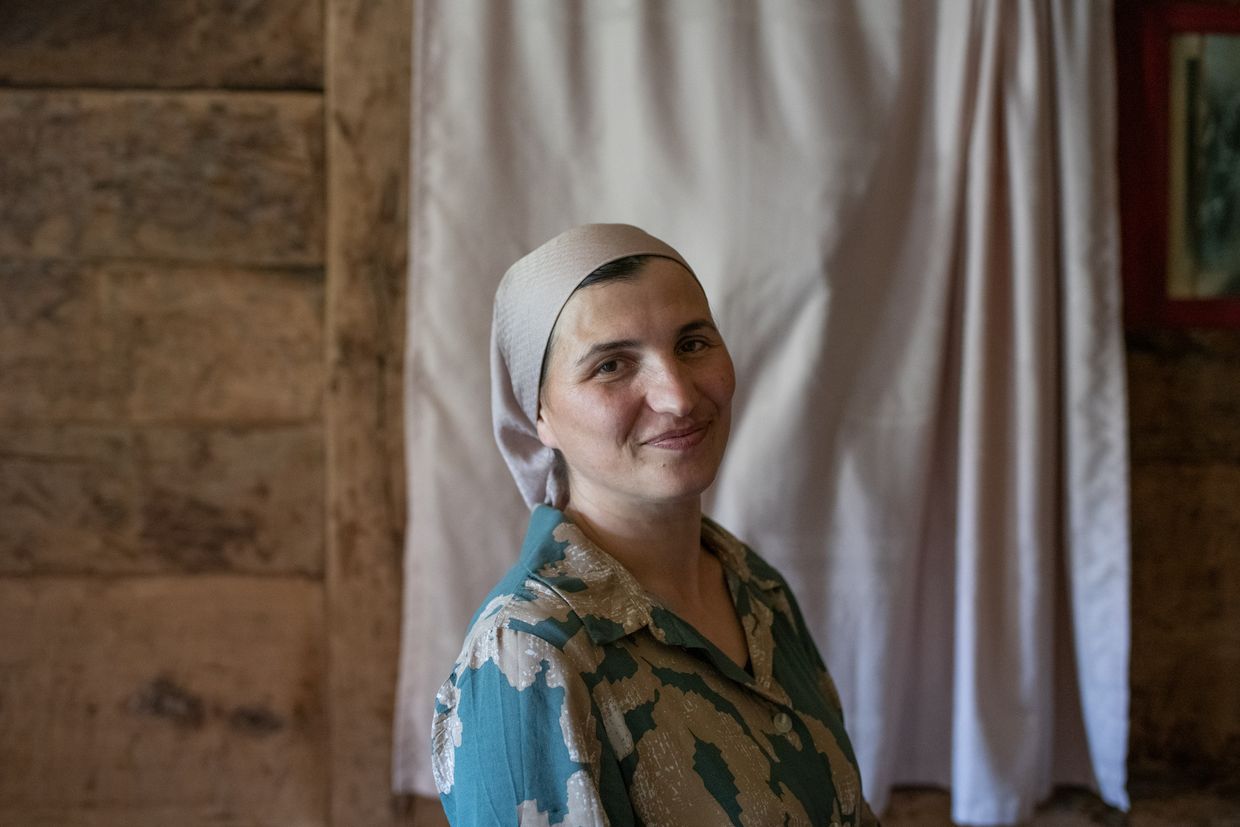
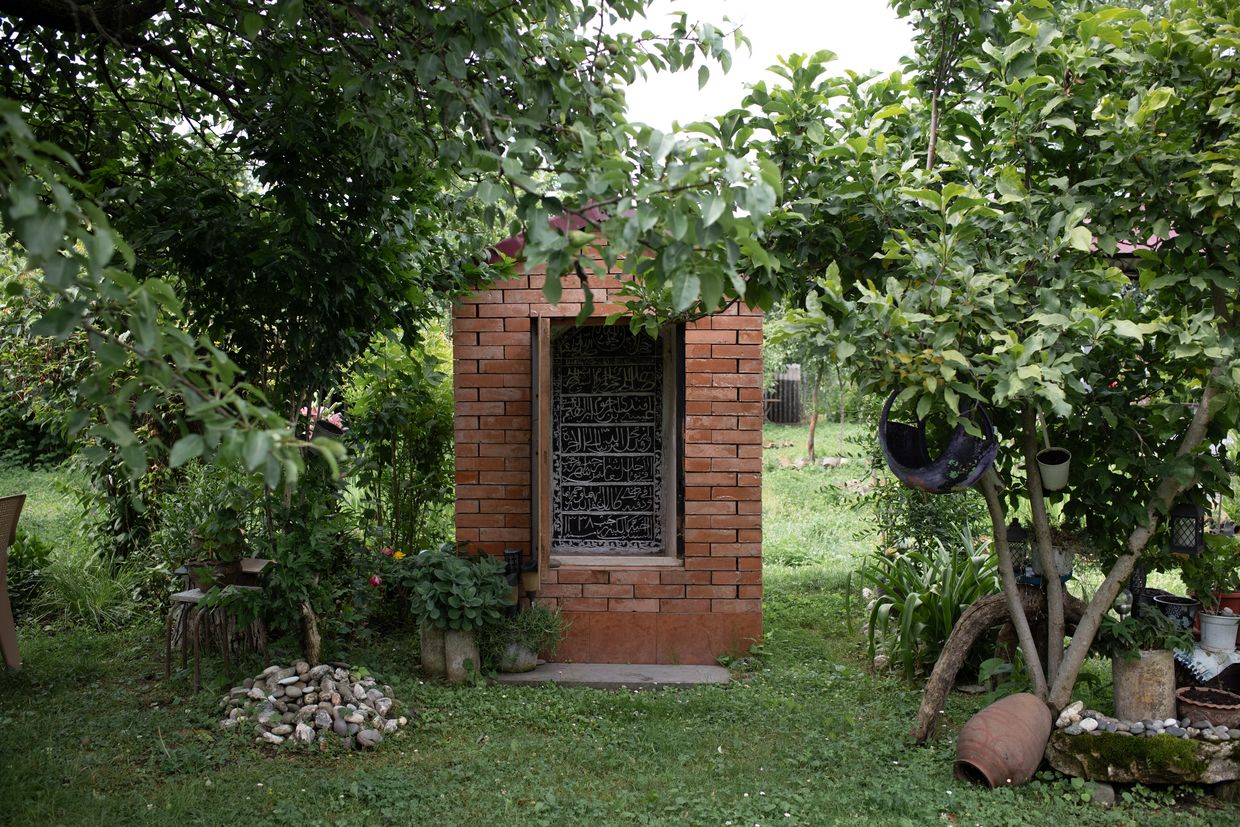
Khatuna loves Zikr, however, and wants to eventually turn Isa-Effendi’s quarters into a small museum; she has recorded Zikr and Nazms and wants to set up a small screen that will show the visitors the Sufi practice.
In the same vein, Fatima Margoshvili, a 21-year-old student and tourist guide, found that after doing an exchange programme in Saudi Arabia, she came back with an understanding of the importance of her local culture.
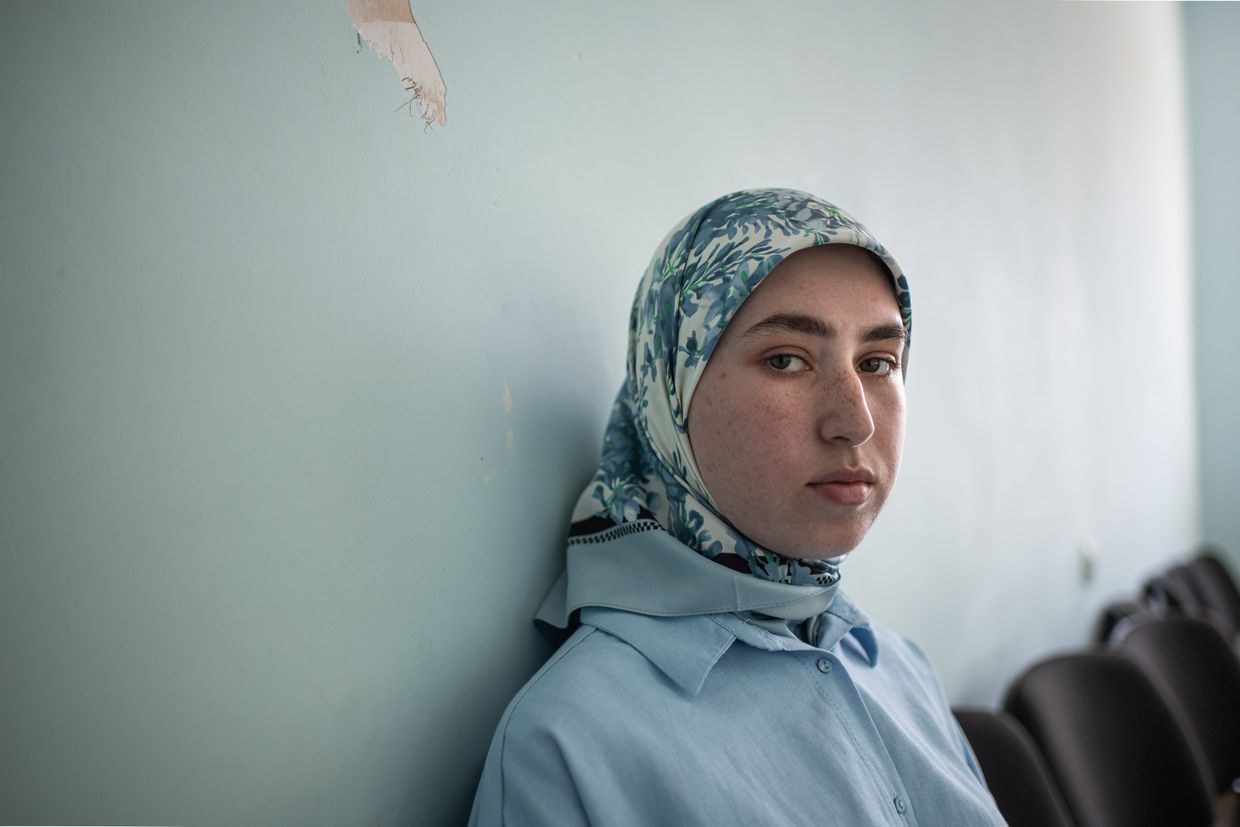
Though she says she is undecided about continuing the tradition herself, she deeply respects Zikr. She also sees how nowadays, for a young person to pursue the path to becoming a religious leader in the community, one mostly goes abroad, receiving religious education in the countries where Sufism is not dominant. Yet it was getting to know other Muslim culture that gave her a better appreciation of her own:
‘It was valuable to see how diverse Islam is, and I do not consider myself a radical follower of either of these teachings. I just think that with time, you discover your own way of religious practice. I see that people who perform Zikr today do this because of our traditions, and I’ve realised we’ll exist as an ethnos as long as we preserve them.’




